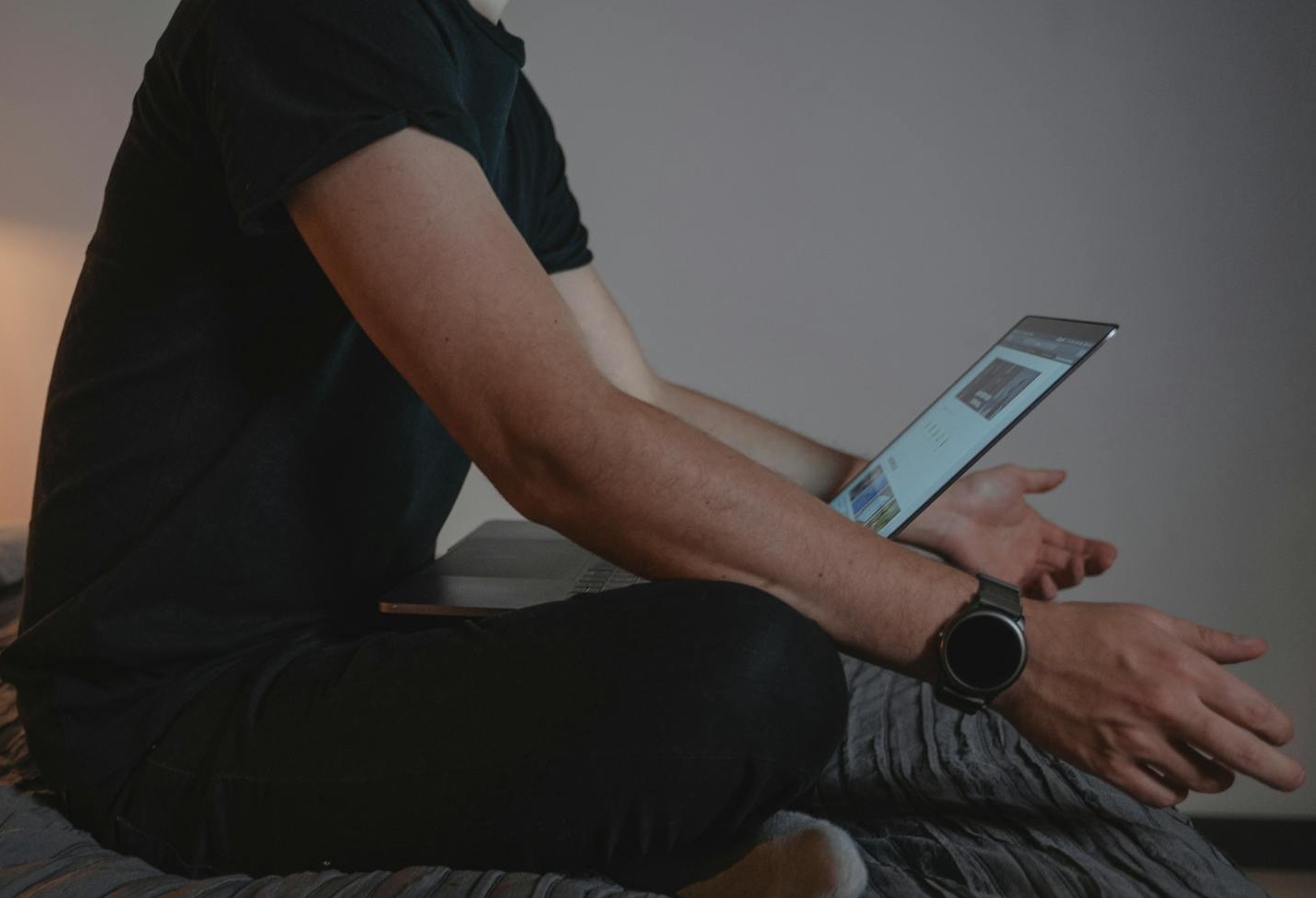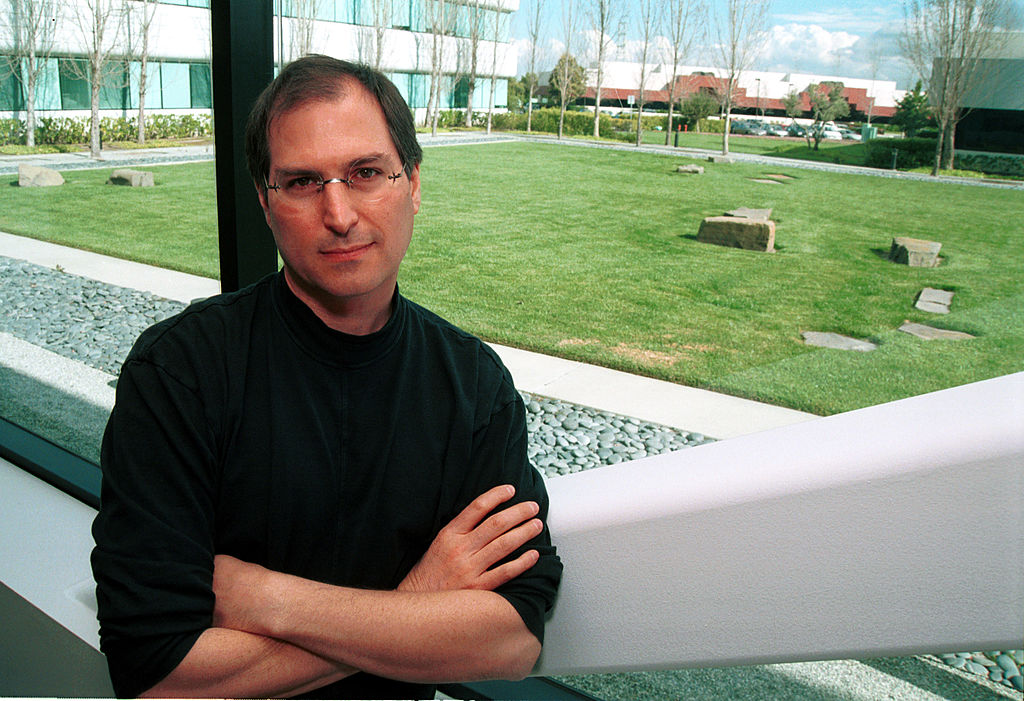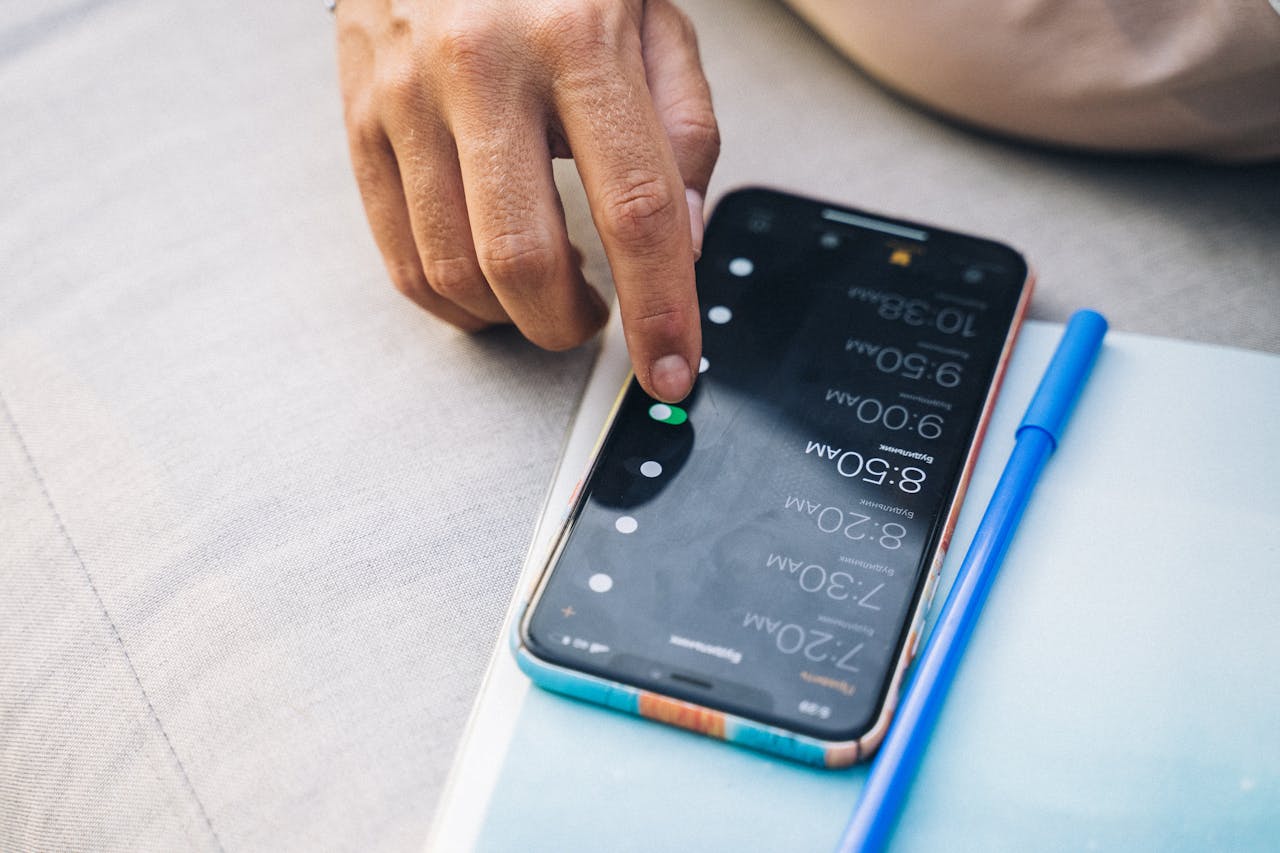The Best Tips To Set Yourself Up For Success
Throughout history, the world's most successful people have shared many of the same habits, such as setting daily goals and engaging in physical activity. But everyone is unique and what works for one person might not work for another. Here are 40 of the best tips to consider incorporating into your routine.

Decide On A Theme For Each Workday
Jack Dorsey, the American web developer and entrepreneur who cofounded Twitter, Bluesky, and Square, dedicates each workday to a certain kind of task to help him stay focussed. For example, Wednesdays are devoted to marketing and communications while Fridays are focussed on company culture and recruiting.
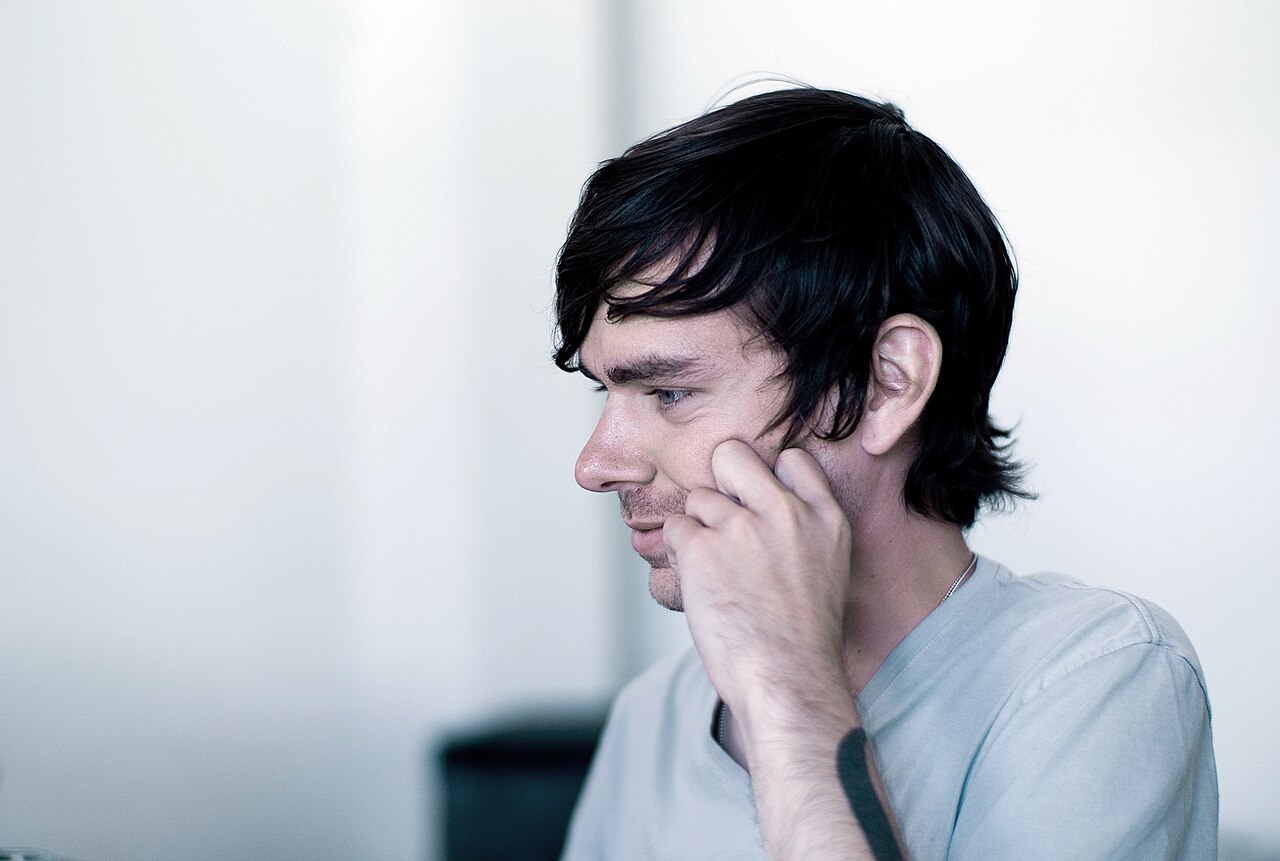 Joi Ito, CC BY 2.0, Wikimedia Commons
Joi Ito, CC BY 2.0, Wikimedia Commons
Take Weekends Off To Recharge
Dorsey is known for working full eight-hour days at each of his businesses—which has meant 16-hour days when he has two companies in development. Despite his tremendous dedication, he takes each weekend off to rest and recharge.
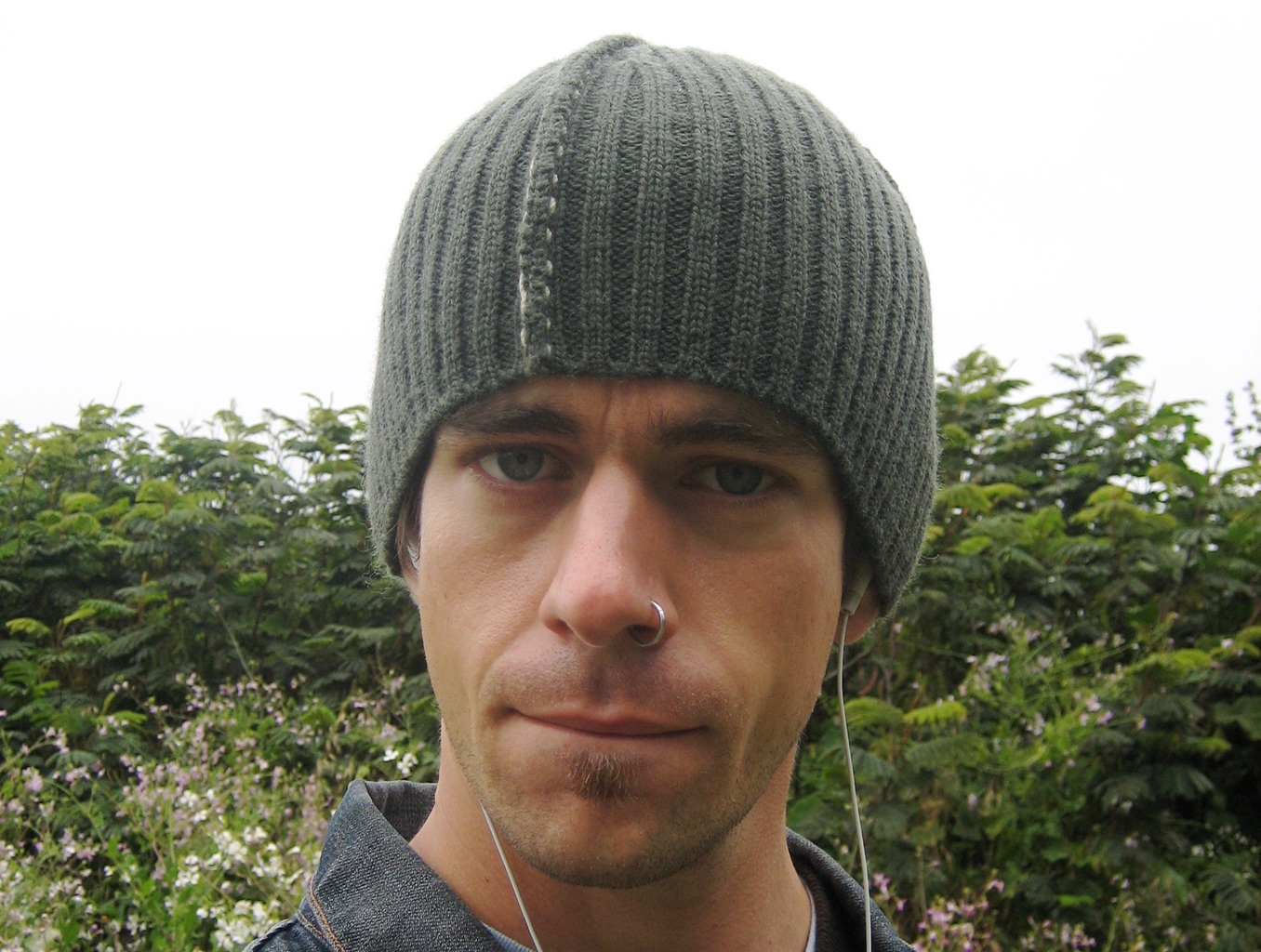 Jack Dorsey, CC BY 2.0, Wikimedia Commons
Jack Dorsey, CC BY 2.0, Wikimedia Commons
Exercise—At Whatever Time Works Best For You
Evan Williams, who cofounded Twitter, Blogger, and Medium, goes to the gym in the middle of the day. Since Williams' energy and focus are high in the mornings, he feels it's best not to spend that time at the gym. Instead, he goes mid-day, giving him a serotonin boost to continue his day.
Work From Bed
We've all seen memes about attending web meetings while in bed or at least while wearing pyjamas. But, working remotely while snuggled under the covers isn't a 21st-century innovation—Winston Churchill, the iconic British statesman, did it too.
Take Power Naps
Churchill obviously loved his bed! In addition to reading his mail and dictating to his secretaries while he remained comfortably in bed each morning, he also took a daily nap around 5:00 pm. His naps reinvigorated him, allowing him to continue working after dinner. 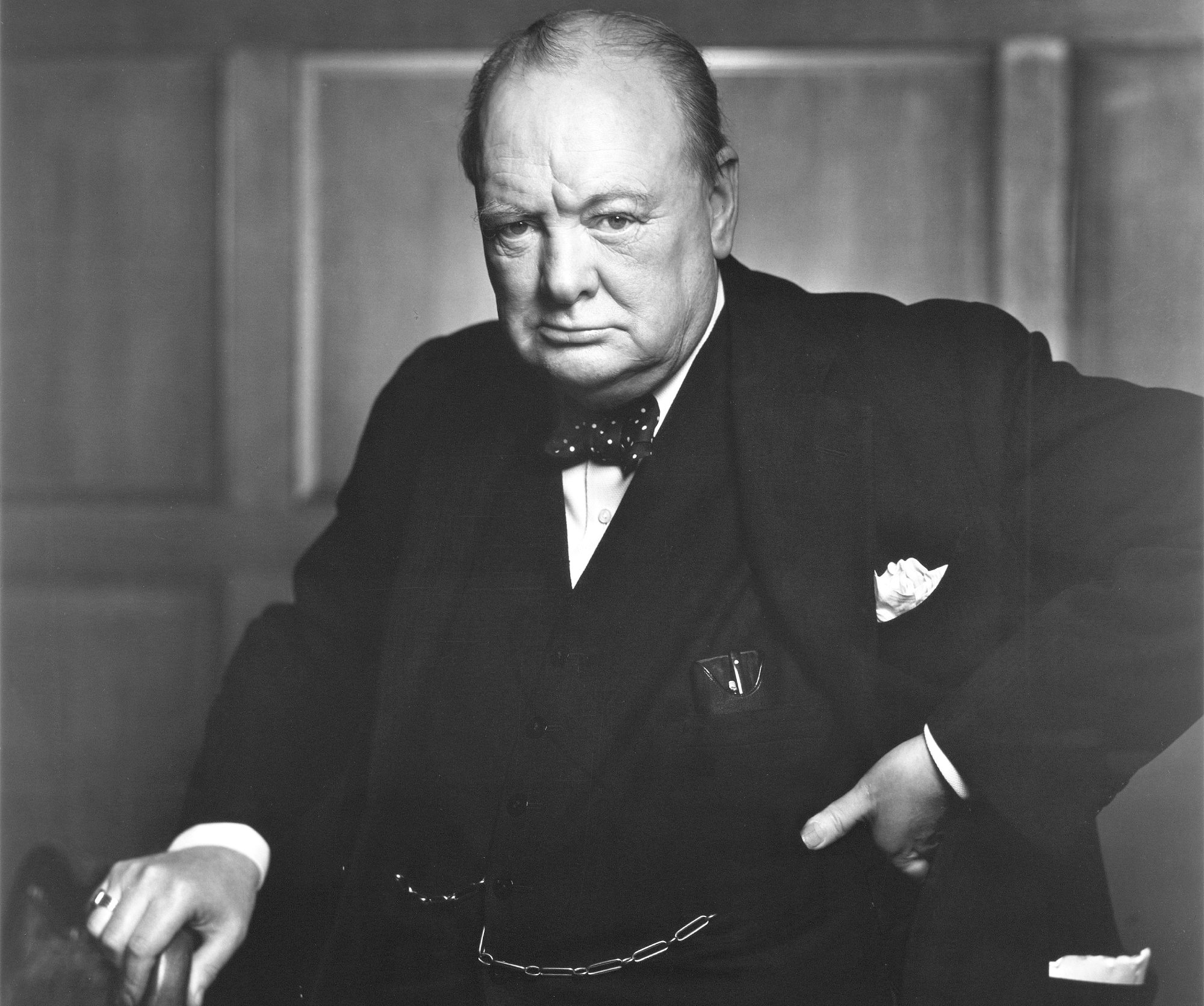 Yousuf Karsh, Wikipedia
Yousuf Karsh, Wikipedia
Break Bread With Loved Ones
Barack Obama cherishes the ritual of sharing meals with his family. Even when he was President of the United States, Obama ate breakfast and dinner with his wife and daughters as often as possible.
 The White House from Washington, DC, Wikimedia Commons
The White House from Washington, DC, Wikimedia Commons
Do A Nightly Review
While in the Oval Office, Obama regularly returned to work after dinner, primarily to catch up on work and review documents. This routine helped him prepare for the next day and allowed him the time to spend with his family over breakfast.
 White House (Chuck Kennedy), Wikimedia Commons
White House (Chuck Kennedy), Wikimedia Commons
Minimize Decision Fatigue
Even the simplest decisions—like what to eat or wear—contribute to decision fatigue. Making decisions drains our mental energy, which is problematic when your job requires that you make many difficult decisions daily. Both Obama and Steve Jobs simplified their clothing choices to save their mental energy for harder things.
 David Paul Morris, Getty Images
David Paul Morris, Getty Images
Regularly Re-Evaluate Your Priorities And Goals
Jobs famously said that he looked in the mirror every morning and asked himself, "If today were the last day of my life, would I want to do what I am about to do today"?
If he answered "no" for several days in a row, he knew it was time for change.
Embrace Flexibility
Like Dorsey, author and podcaster Tim Ferriss assigns a certain theme to each weekday. Other than that, he doesn't get bogged down by scheduling. He is most productive and happy when he has the flexibility to do the things he truly enjoys. While most of us don't live that reality, Ferriss' tip is a good reminder to prioritize joy in your day.
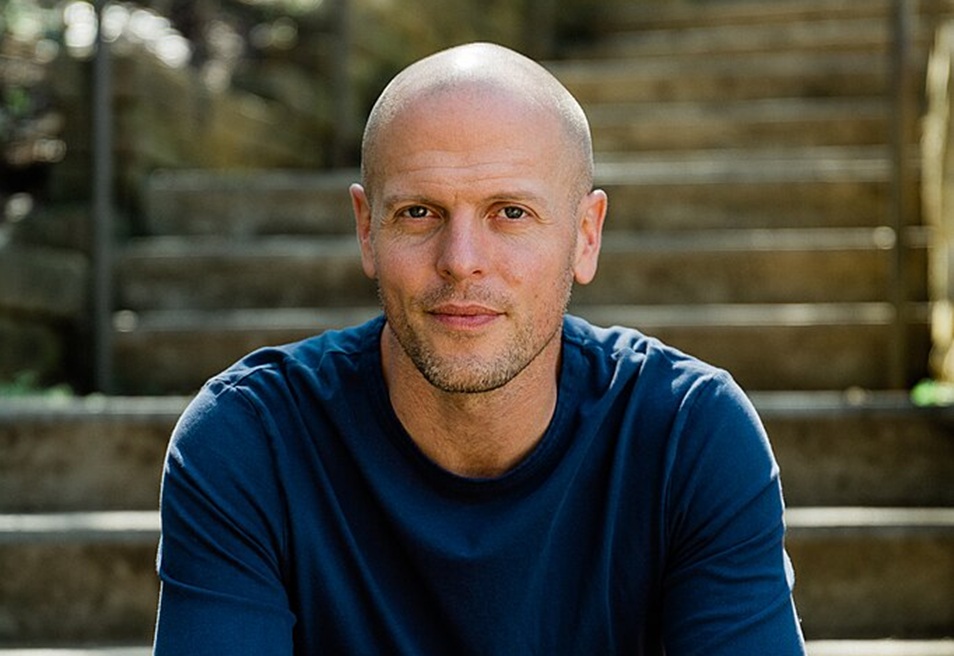 Todd White, CC BY-SA 4.0, Wikimedia Commons
Todd White, CC BY-SA 4.0, Wikimedia Commons
Keep Breakfast Fast And Easy
If you're one of those people who need a good breakfast for energy and focus, make breakfast easy by doing prep ahead of time. Overnight oats, breakfast wraps, healthy muffins, and fresh fruit can all be prepared in batches, allowing you to grab and go in the morning.
Listen To Your Circadian Rhythm
Your circadian rhythm doesn't just affect your sleep patterns—it also impacts your energy levels throughout the day. Tapping into your circadian rhythm can help you schedule certain tasks at your peak productive times. For instance, if you're naturally a night owl, your creativity may be at its strongest in the wee hours of the morning.
Use An Alarm To Signal Bedtime
Many of us struggle to get enough sleep. Whether we're doomscrolling, engaging in revenge bedtime procrastination, or losing track of time in internet rabbit holes, it can be hard to turn everything off and fall asleep. Setting a nightly alarm to indicate it's bedtime may help.
Wind Down Before Bed
Disengage from the day's work and your electronic devices about 20-30 minutes before bedtime. Carve out time to let the day's chaos settle by doing things like taking a walk, reading for pleasure, meditating, or taking a bath. Once your activity is done, resist the urge to re-engage and get into bed.
Establish A Weekend Morning Routine
While weekends should allow for flexibility and fun, leaving your weekday morning routine in the rearview mirror can make it more difficult to get back on track on Monday morning. One suggestion is to wake up at the same time seven days a week but use the early morning hours differently on weekends.
Keep Home And Work Separate
Post-pandemic, it can be difficult to separate home and work. Many of us work remotely or are entrepreneurs or gig workers based at home. However, maintaining a healthy work/life balance is important. Establish a dedicated workspace within your home and don't let work tasks (like checking emails) creep into your non-work hours.
Set Goals And Power Through
American author Ernest Hemingway set a goal of writing 500 words every day. He started writing soon after sunrise each day, taking advantage of the early morning hours when there are few distractions. He powered through until his goal was complete.
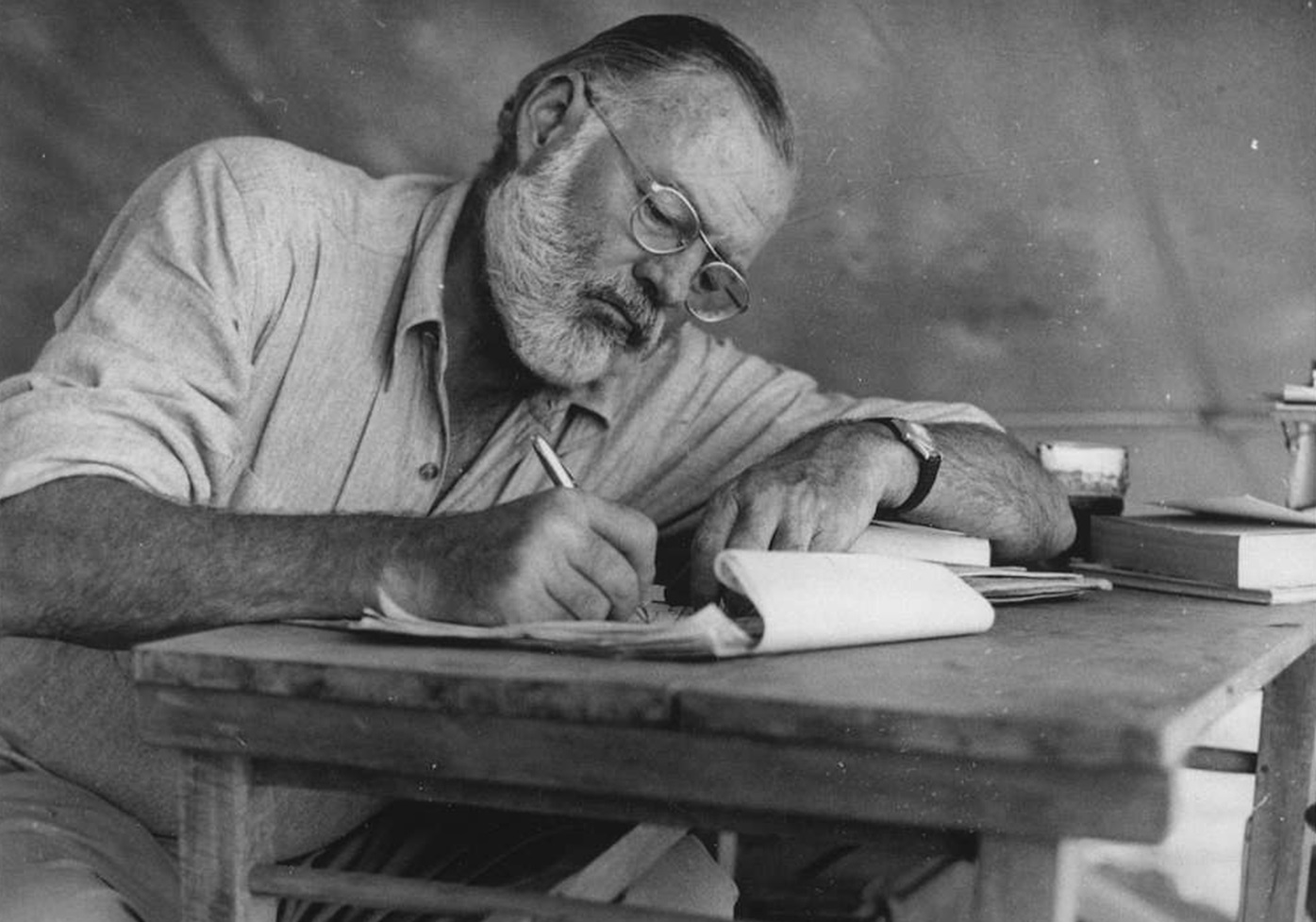 National Archives and Records Administration, Picryl
National Archives and Records Administration, Picryl
Keep Your Daily Goals Reasonable
Hemingway's daily goal of 500 words is the equivalent of about two double-spaced typed pages. By keeping his goal reasonable, he ensured that he never felt drained or empty; and he always looked forward to continuing the story the next day.
 A+E Networks, Biography Ernest Hemingway: Wrestling with Life(1998)
A+E Networks, Biography Ernest Hemingway: Wrestling with Life(1998)
Understand The Value Of Downtime
Downtime is important for rest and rejuvenation—and for clarifying ideas and finding new inspiration. Hemingway valued his time away from writing, understanding that it allowed his subconscious to refine his stories and give him inspiration to continue the next day.
 John F. Kennedy Presidential Library and Museum, Wikimedia Commons
John F. Kennedy Presidential Library and Museum, Wikimedia Commons
Take A Break Before Reflecting
Writer Joan Didion's routine included a deliberate break between her day's work and reflecting on it. Like Hemingway, Didion found it important to allow her subconscious to churn over her work. But, unlike Hemingway, Didion took time to deliberately reflect on the things her subconscious revealed, allowing her to tap deeply into her creativity.
 Kathleen Ballard, Los Angeles Times, CC BY 4.0, Wikimedia Commons
Kathleen Ballard, Los Angeles Times, CC BY 4.0, Wikimedia Commons
Schedule Distractions
Susan Sontag, the American writer and activist, told people not to call her in the morning; if her phone rang during the morning hours, she wouldn't answer. She only took and responded to phone calls in the afternoon and evening.
Complete Goals Regardless Of Quality
Renowned author Henry Miller was committed to completing his writing goals regardless of how he was feeling or the quality of his work. When he was tired or under the weather, he focussed on writing notes, using them as food for thought. He only worked on pieces for publication when he felt "in fine fettle".
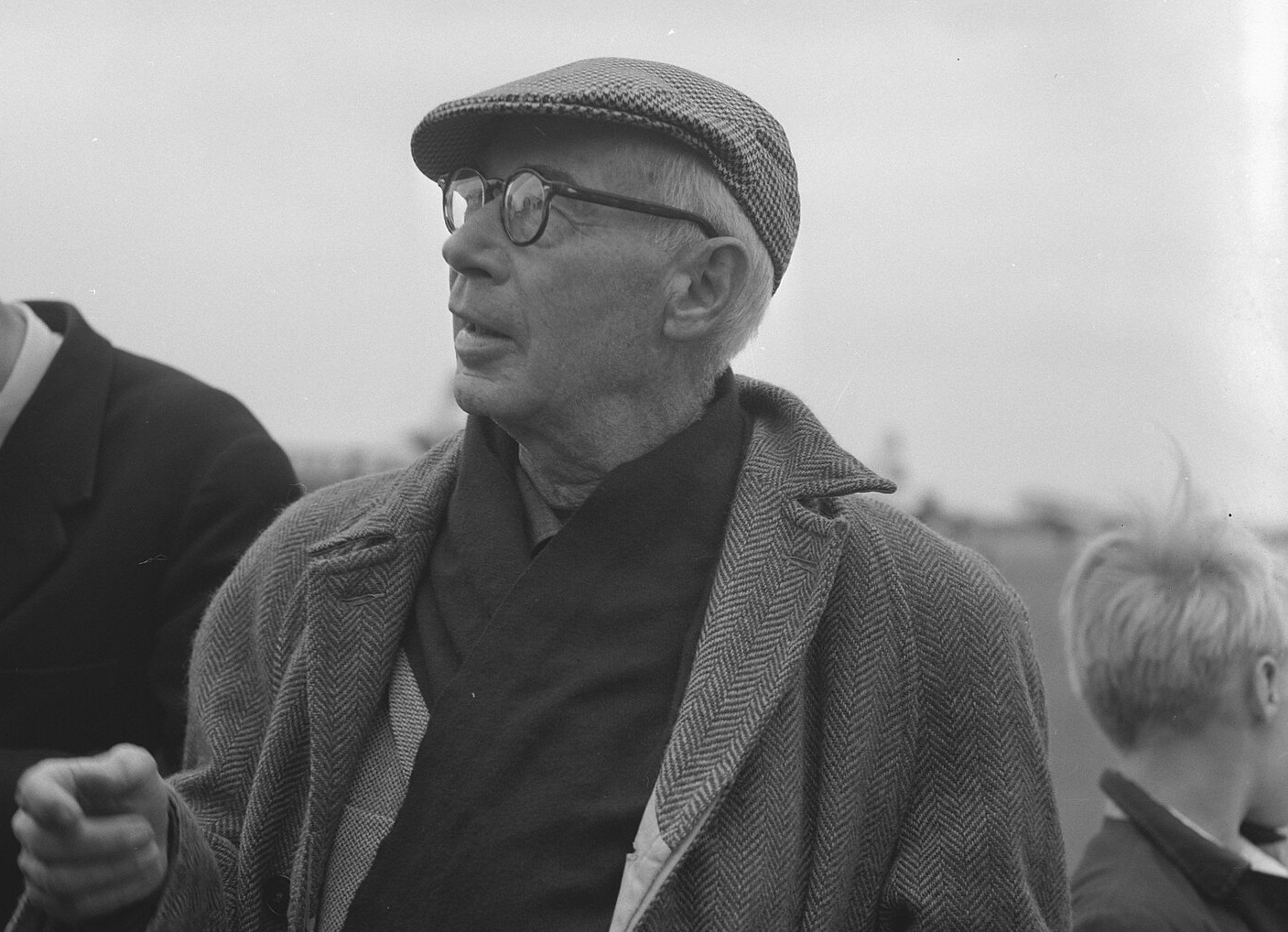 Wim van Rossem for Anefo, Wikimedia Commons
Wim van Rossem for Anefo, Wikimedia Commons
Explore Other Creative Outlets
While famous creatives may achieve their fame through one avenue like acting or writing, they often enjoy dabbling in other areas of creativity like photography or painting. Miller incorporated painting and sketching into his day, especially if he felt tired and needed a creativity boost.
Turn Your Routine Into A Habit
When you follow the same strict routine every day, you turn it into a habit—that is, you start doing your routine tasks without thought. Haruki Murakami, the best-selling Japanese author, doesn't vary his routine while working on a project, believing that steady repetition fuels creative output.
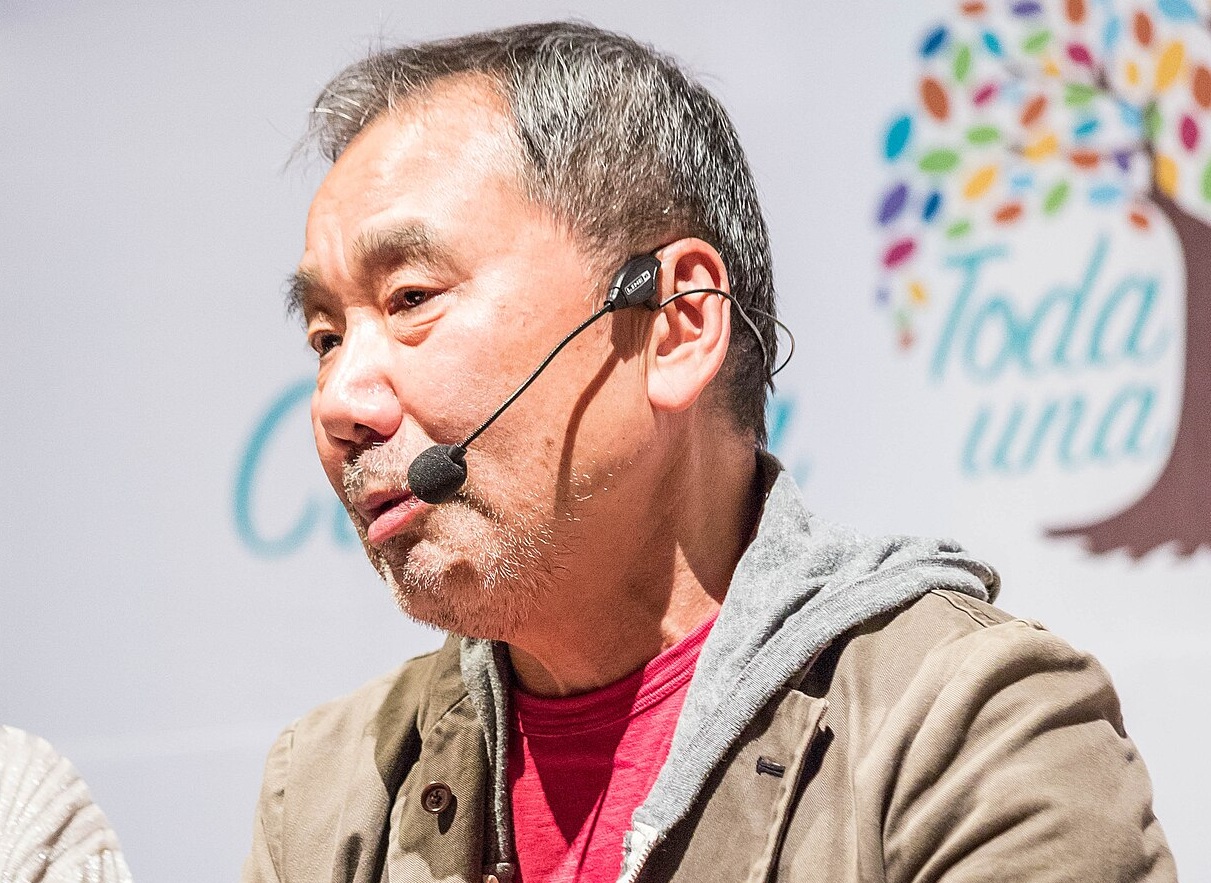 Ministerio Cultura y Patrimonio, Wikimedia Commons
Ministerio Cultura y Patrimonio, Wikimedia Commons
Establish Inner Stillness
Cultural icon Oprah Winfrey starts her days with a focus on inner stillness. Her morning routine includes meditation, reflecting on her intentions, and practicing gratitude.
Stay Hydrated
Actress Jennifer Aniston starts each day with a glass of warm lemon water. In addition to helping to boost your daily water intake, lemon water is a source of Vitamin C and is believed to aid in digestion.
Start Your Day With Protein
Incorporating protein into your breakfast routine—like Aniston does—can have several benefits. It can help you feel full for longer, which can contribute to maintaining a healthy weight. It can also help keep your blood sugar and energy levels stable throughout the day.
Take A Cold Plunge
Motivational speaker and self-help guru Tony Robbins incorporates a cold plunge into his daily routine. It provides an instant burst of energy and a boost of confidence. Hey, if you can step into a freezing cold shower first thing in the morning, you can do anything!
Do Breathing Exercises
A 10-minute breathing exercise is a key part of Robbins' morning routine. Based on yogic practices, a focussed breathing exercise can boost your energy and calm your mind for the day ahead.
Be Grateful—For The Small Things Too
Like many other highly successful people, Robbins begins his day with a gratitude practice. While our natural inclination is to focus on big things, expressing gratitude for small things—like the sun on your face—teaches you to tap into joy.
Visualize Success
Visualizing success—or manifesting—is practiced by many, including Robbins. It's important to go beyond simply visualizing your successful outcome. To truly harness the power of manifesting, step into the emotions you'll feel when your goal is achieved.
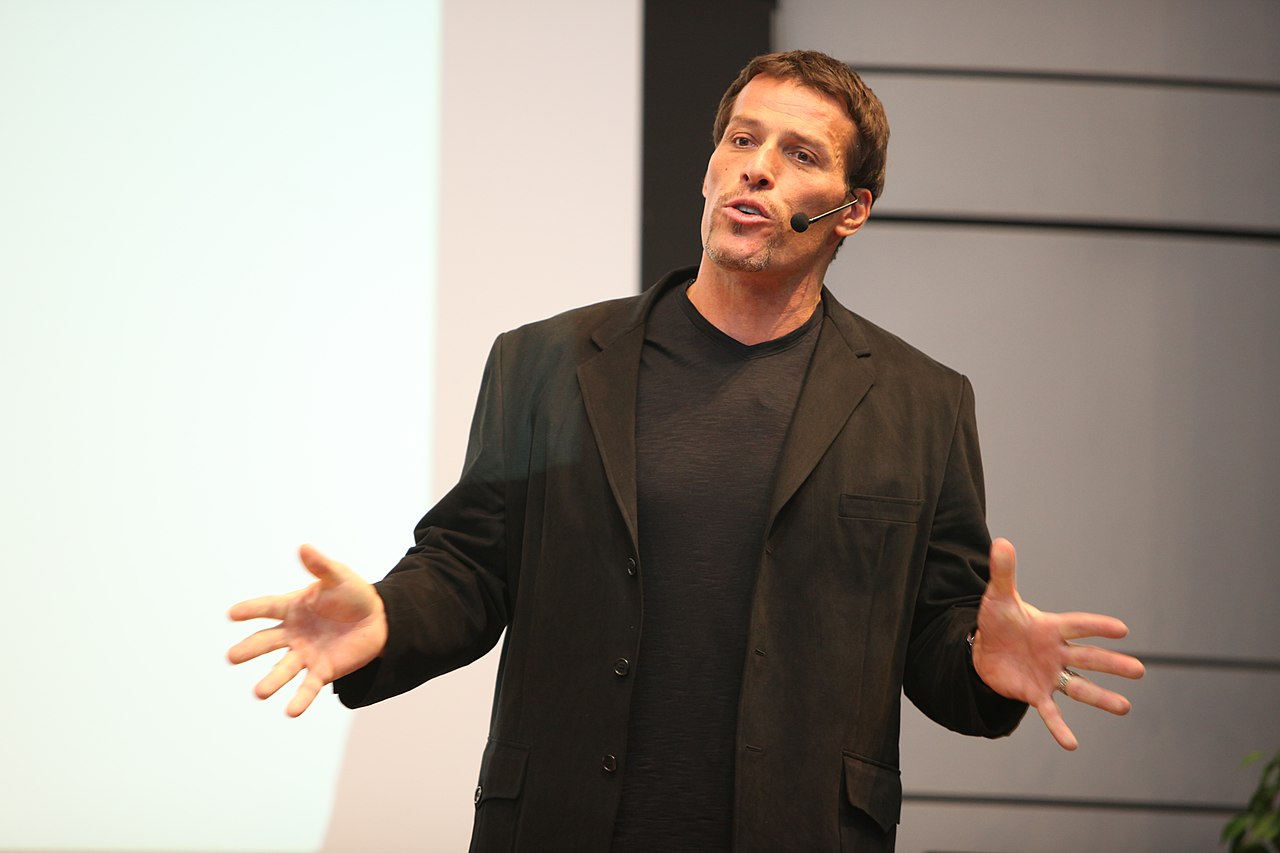 Brian Solis, CC BY 2.0, Wikimedia Commons
Brian Solis, CC BY 2.0, Wikimedia Commons
Engage in Competitive Exercise
While many people hit the gym or go for a run first thing in the morning, Anna Wintour, the editor-in-chief of Vogue magazine, starts her day with a tennis match. The competitive exercise sets the tone for her day by boosting her energy and sharpening her focus.
Put Your Best Face Forward
Wintour follows her daily tennis game by devoting time to her impeccable hair and makeup. Feeling good about your appearance can empower you by boosting your self-esteem and self-confidence.
Wait To Turn Your Phone On
Arianne Huffington starts her day by practicing gratitude and yoga. She doesn't turn her phone on until these practices are complete, allowing her to fully benefit from her calming and uplifting morning routine.
 David Shankbone, CC BY 3.0, Wikimedia Commons
David Shankbone, CC BY 3.0, Wikimedia Commons
Harness The Power Of Intense Workouts
While some successful people focus on gentle, calming morning exercises like yoga, others—like Dwayne "The Rock" Johnston—favour intense exercise including cardio and weight training. The exertion produces endorphins and a boost of energy, to set you up for a productive day.
 Trijnstel, CC BY-SA 3.0, Wikimedia Commons
Trijnstel, CC BY-SA 3.0, Wikimedia Commons
Develop A Daily Morning Routine
Author and blogger Leo Babauta recommends experimenting to find a morning routine that works well for you. Babauta believes that accomplishing goals in the morning (e.g., exercising, meditating, or drinking a set amount of water) gives you a sense of purpose and sets you up for success during the rest of the day.
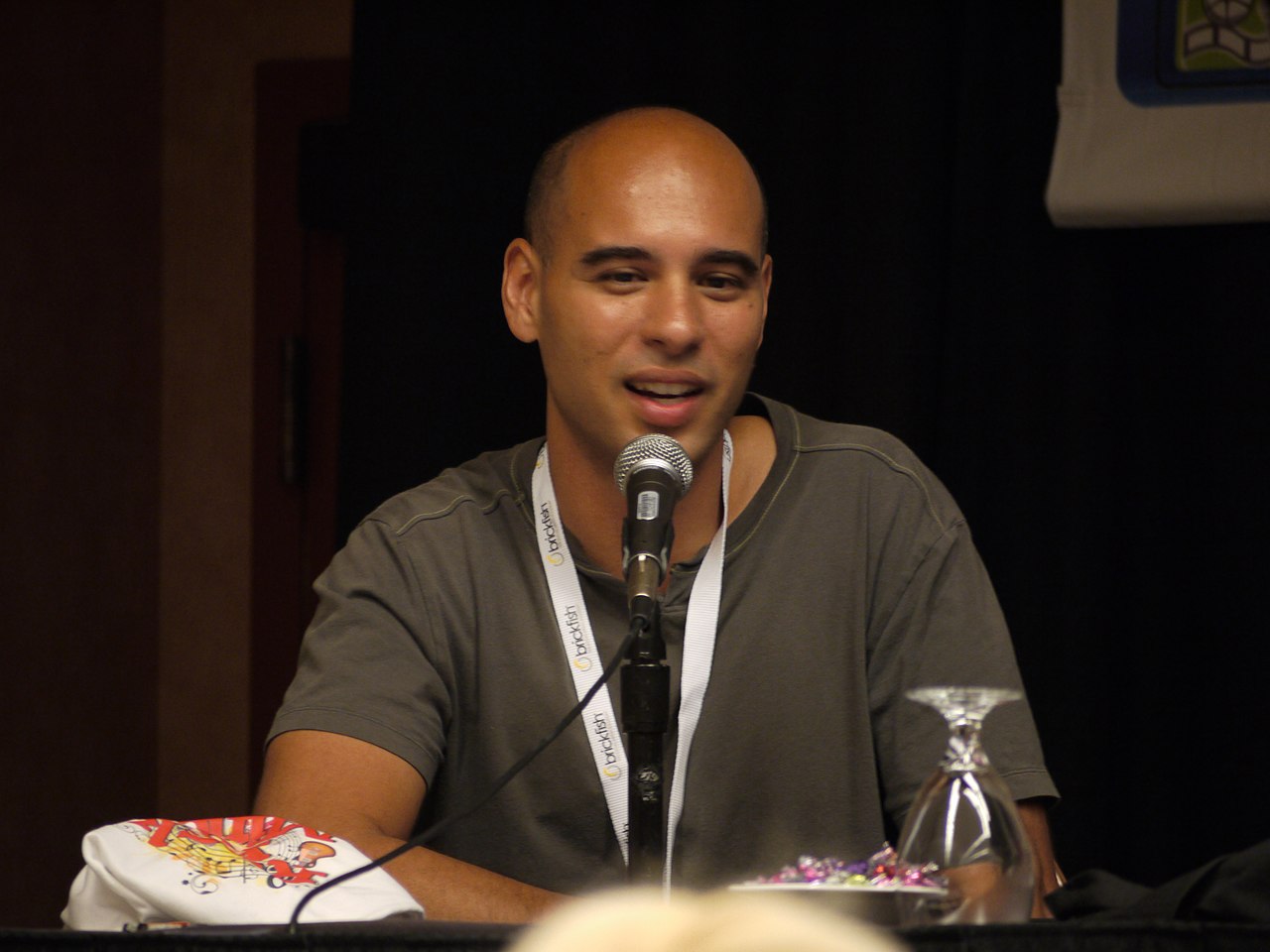 Bill Rice, CC BY 2.0, Wikimedia Commons
Bill Rice, CC BY 2.0, Wikimedia Commons
Prioritize Your Daily Goals
While someone like Hemingway may be able to focus on the same goal every day—writing 500 words—most of us need to juggle multiple tasks and goals. Babauta takes time each morning to define his three most important things (MITs) for the day.
Ask Yourself Two Questions Each Day
Benjamin Franklin started each day by asking himself, "What good shall I do this day?" At the end of each day, he would reflect on the same topic, asking himself "What good have I done today?"
 David Martin, Wikimedia Commons
David Martin, Wikimedia Commons
Set A Daily Routine But Be Flexible
Franklin broke his day into chunks, setting aside blocks of time for daily activities while allowing for flexibility. For example, 6:00 pm to 9:00 pm was designated for tidying, having supper, enjoying music or participating in other "diversions", and reflecting on the day.
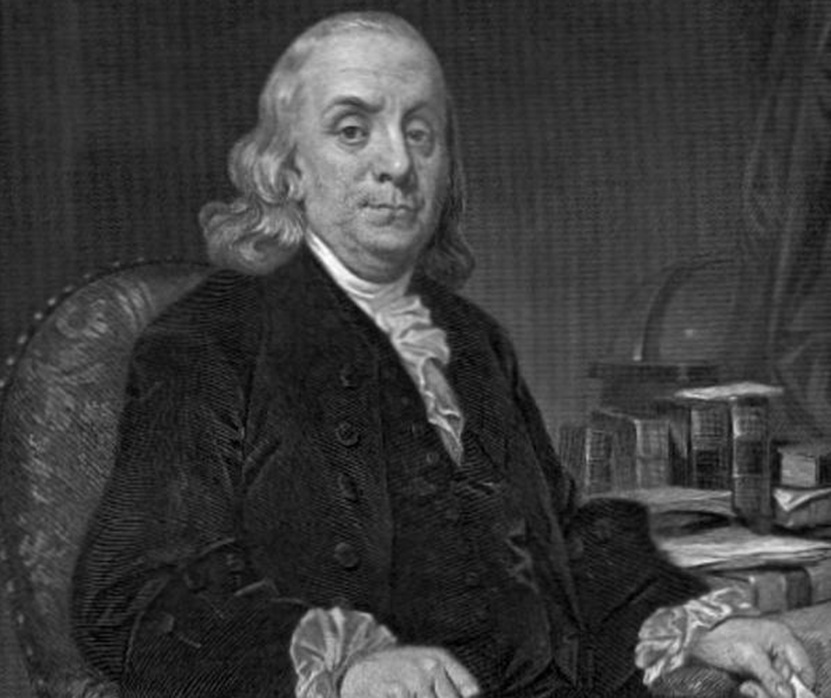 Unknown Author, Wikimedia Commons
Unknown Author, Wikimedia Commons
Take Air Baths
Cold water immersion is a trendy wellness practice today but people took cold water plunges during Franklin's era too. However, the statesman believed that cold water shocked the body too much; he preferred air bathing, in both cold and warm air. He would sit in his bedroom, unclothed and with open windows, to let fresh air wash over his body while he read or worked.
You May Also Like:
Middle-Class Mistakes That Keep You Broke
15 Ways To Put More Money Aside For Your Future In 2025
Incredible Stories Of People Who Went From Extreme Poverty To Unimaginable Wealth



